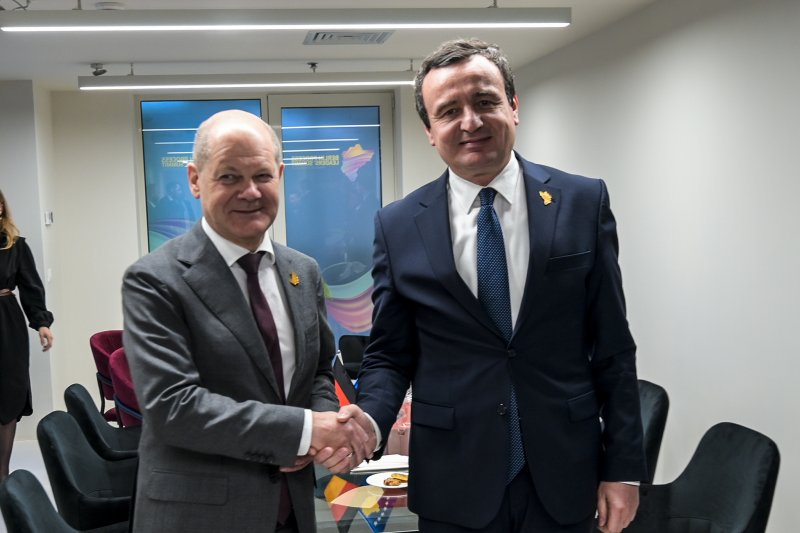Germany Urges Kosovo to Postpone Currency Change in Serb Enclave
The German government urged Kosovo to delay plans to enforce the euro as its sole currency amid worries that the move could compound ethnic tensions by disrupting cash access to ethnic Serbs in the country’s north.
Kosovo, which unilaterally declared independence from Serbia in 2008, has used the single European currency provisionally for over two decades, though isn’t a euro member. New currency restrictions announced for Feb. 1 prompted Serbian complaints that it would threaten dinar payments to ethnic Serbs living in Kosovo.
“We strongly appeal to Kosovo to delay the introduction date until an acceptable solution is found,” Christiane Hoffmann, a deputy government spokeswoman, told reporters in Berlin on Friday. While the matter is a sovereign decision for Kosovo, Hoffmann called the currency move a “significant step with far-reaching consequences,” requiring more time and preparation.
European leaders have failed in efforts to normalize ties between Serbia and Kosovo, whose sovereignty authorities in Belgrade refuses to recognize. Tensions in Serb-dominated northern Kosovo boiled over last year into the worst violence in almost two decades.
Kosovo’s central bank announced earlier this month that as of next week, it will ban any lender from operating without a license, potentially affecting Serbia’s Postanska Stedionica, the key conduit for funds in Serbian dinars that some 90,000 Serbs in Kosovo rely on.
-Dinar Payments
Serbia’s central bank, which maintains that the payments are recorded transparently and with oversight from Pristina, said in a statement that the restrictions present “a direct threat to the existence of the Serbian population and aims to drive more Serbian people from Kosovo.”
The Serb community receives payments for pensions, health care, education and investments — payments so far made with little oversight from Kosovo’s predominantly ethnic Albanian authorities. The government in Belgrade sends more than $100 million annually to support Kosovar Serbs.
The EU and US have warned against any abrupt changes as mediators seek to broker a comprehensive agreement between the Balkan neighbors, both of whom have aspirations to join the 27-member bloc. The talks have stalled primarily on the fate of Serbs who became a minority after Kosovo’s split.
“Kosovo should be able to control currency in the country — it shouldn’t be controversial,” said Florian Bieber, director of the Centre for Southeast European Studies at the University of Graz. “But the dialog with Serbia is now in such a difficult place, and at the end of the day, Kosovo’s government should try to get Kosovo Serbs to see themselves as more integrated.”
(Source: Bloomberg)













